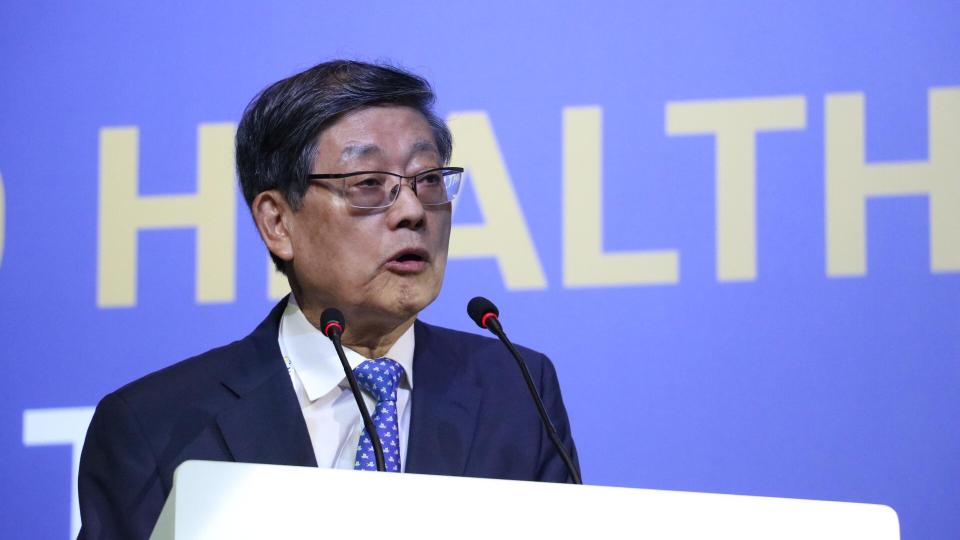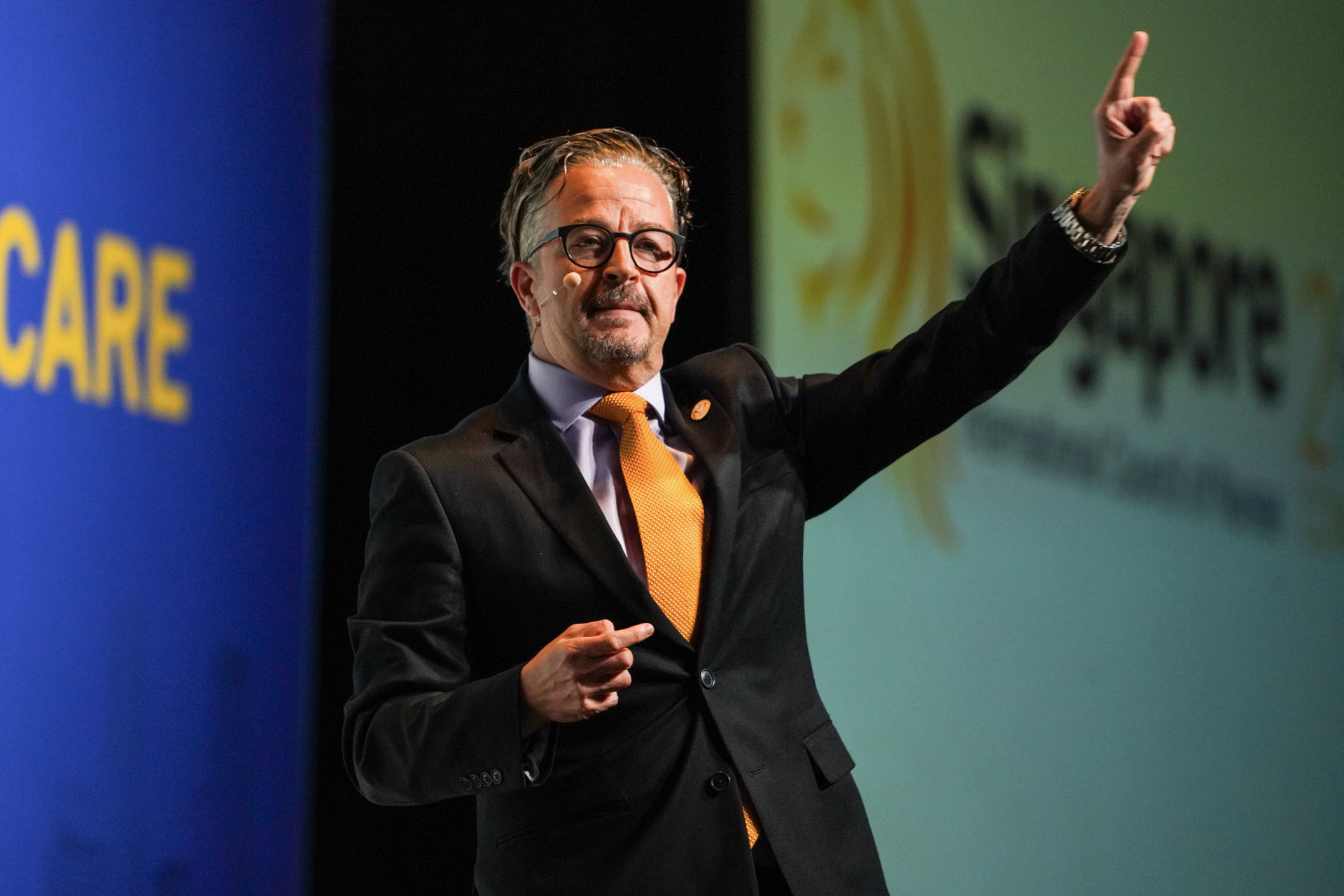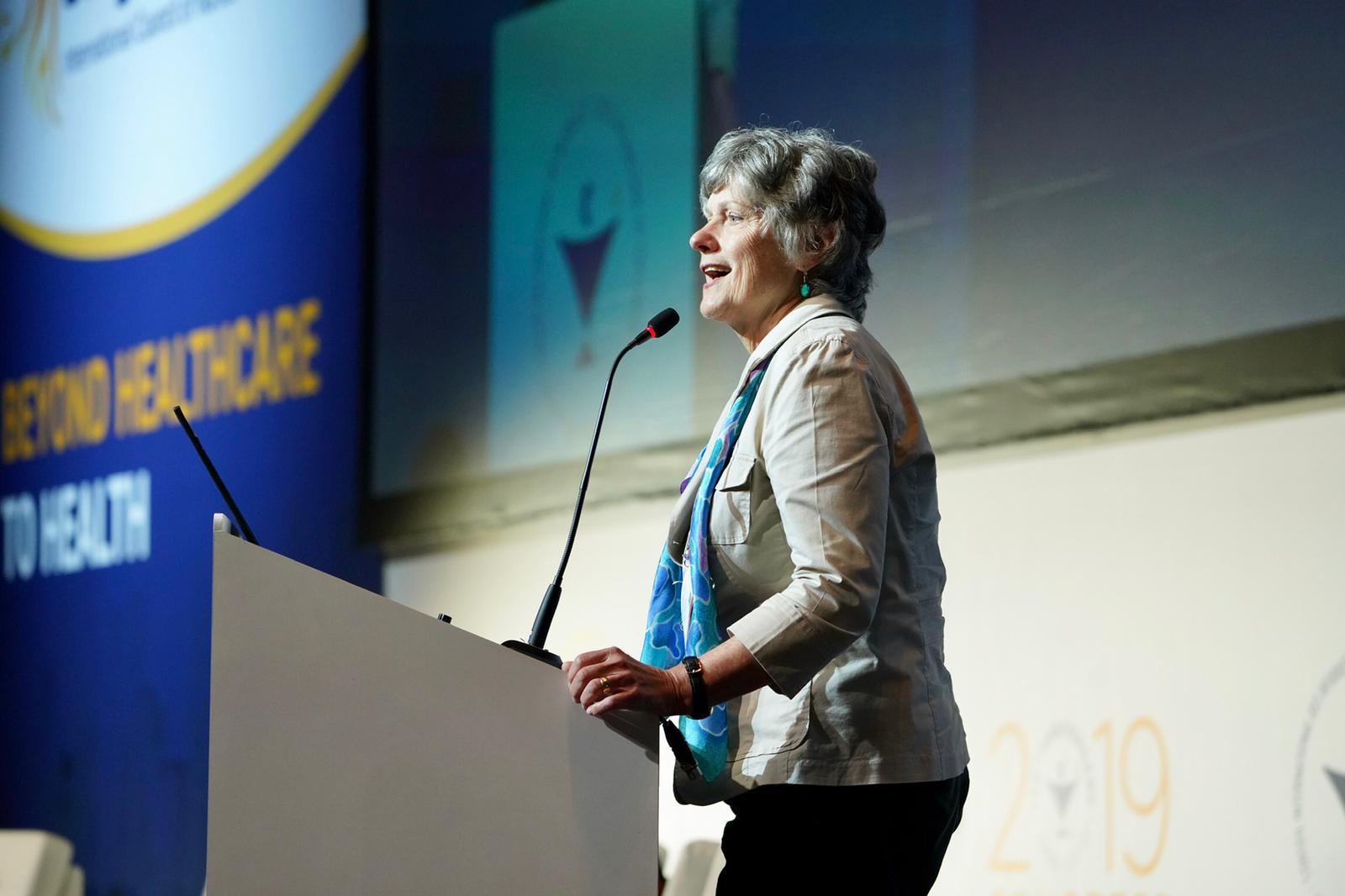Former Prime Minister of South Korea calls for “leadership like that of Florence Nightingale”

Singapore; Geneva, Switzerland, 29 June 2019 – With 40 years of public service and based on his experience of former Prime Minister of Republic of Korea, Kim Hwang-sik addressed the over 5000 nurses at the International Council of Nurses (ICN) Congress in Singapore, emphasizing the importance of political leadership and health and how to influence strategic decision making.

“We need leadership like that of Florence Nightingale what persuaded politicians to build a nursing system that allows for patients to be properly taken care of,” he said”
As chair of a multi-national committee that is nominating two Austrian nurses for the Nobel Peace Prize, Kim Hwang-sik spoke about the two nurses, Marianne and Margaret, who went to the Republic of Korea in the early 1960s to work with people who had leprosy, which is also called Hansen’s disease. After their charity left South Korea in 1971, they stayed on as volunteers for more than 40 years, working to improve the health and status of the people they cared for. The Korean Nurses Association (KNA) has launched a petition to nominate the two nurses for the Nobel Peace Prize.
ICN’s role of lobbying government and educating the public over the past 120 years was highlighted by ICN President, Annette Kennedy, and ICN Chief Executive Officer, Howard Catton, in a plenary session on ICN’s role as the global voice of nursing. As the oldest health professional organisation globally, ICN’s reputation has been built on generations of excellent leadership from nurses across the world. That leadership continues to effectively reflect and promote the voice of nurses and nursing, leading the profession into the future. “Carpe diem, nurses! said Howard Catton. “This is our time, this is our opportunity, this is our responsibility. Together, let’s seize it!”
Nursing leadership and policy were discussed by Marla Salmon, Professor of Nursing and Global Health at the University of Washington, and a young nurse representative Sarah Walji, providing insights across the generations. Together, they addressed the growing challenges of Increasing political acrimony with deepening divides among people and the impact on health and wellbeing in many countries. The session focused on key “legacy” leadership concepts and lessons that hold promise for nurses across settings and circumstances.

“Leadership is risky, it has a price, and the price is usually challenging. If policy was easy to make, it probably would not be worth making,” said Professor Salmon.
“Do work with youth! If you open a door for a number of them, they do have the ideas and young minds that will bring the conversation forward,” said Sarah Walji.

Another highlight of the day was the presentations on Nursing innovation in primary health care (PHC) by Akiko Araki, Executive Officer of the Japanese Nurses Association and Simon Hlungwani, President of the Democratic Nursing Organisation of South Africa (DENOSA). Giving perspectives and examples from three different regions of the world, they discussed innovations in PHC and efforts toward the creation of community-based integrated care systems for all generations.
The theme of innovation was continued with an eclectic approach to nursing ethics presented by University of Pretoria Professor Mavis Mulaudzi, who argued that as ethical approaches to health care are expanded an integrative, pluralistic and people centered approach must be adopted, drawn on ideas of ubuntu*, virtue, relational and solidarity ethics.
Primary Health Care and the role of the “expert-patient” and nurse partnerships were explored by Jolanta Bilinska, immediate past President, International Alliance of Patient Organizations. “Expert-patients are those patients who have not only become clinically efficient and effective in managing their own chronic conditions, but also in mapping and navigating their own healthcare systems. Long-term professional relationships and collaboration with their nurse careers have resulted in excellent health outcomes for these patients. Together, they are now one of the most under-recognised and used assets in the post Astana PHC declaration and the universal health coverage decision-making.
The health and wellbeing of nurses as critical factors in health systems development was highlighted by the Chief Nursing Officer of Grenada, Nester Edwards, who showed evidence that a healthy and motivated nursing workforce can lead to better patient outcomes, decrease turnover, reduce the level absenteeism, and result in less stress and burnout. Using examples from the Caribbean, she discussed how the health and wellbeing of nurses are threatened by poor working conditions, staff shortages, poor communication and interpersonal relationships and physical attacks/violence.
Throughout the day delegates were also able to take part in a large scientific programme of concurrent sessions, where evidence-based nursing research was presented and shared. More than 5000 nurses from 120-plus countries are in Singapore to attend the ICN 2019 Congress. The ICN Congress continues till Monday, 1 July.
For details of the Congress programme go to: http://www.professionalabstracts.com/icn2019/iplanner/#/grid Download the Congress app free of charge from the App Store for iPhones and from the Play Store for Android phones. After opening one of these stores, type “K.I.T. Group” in the search toolbar.
* Ubuntu is a word from the Nguni language with several definitions, all of them difficult to translate. At the heart of each definition, though, is the connectedness that exists or should exist between people.
Note for Editors
The International Council of Nurses (ICN) is a federation of more than 130 national nurses’ associations representing the millions of nurses worldwide. Operated by nurses and leading nursing internationally, ICN works to ensure quality care for all and sound health policies globally.
For further information please contact
Gyorgy Madarasz, Press Officer, International Council of Nurses, Tel: +41 22 908 01 16
ICN/PR2019#30